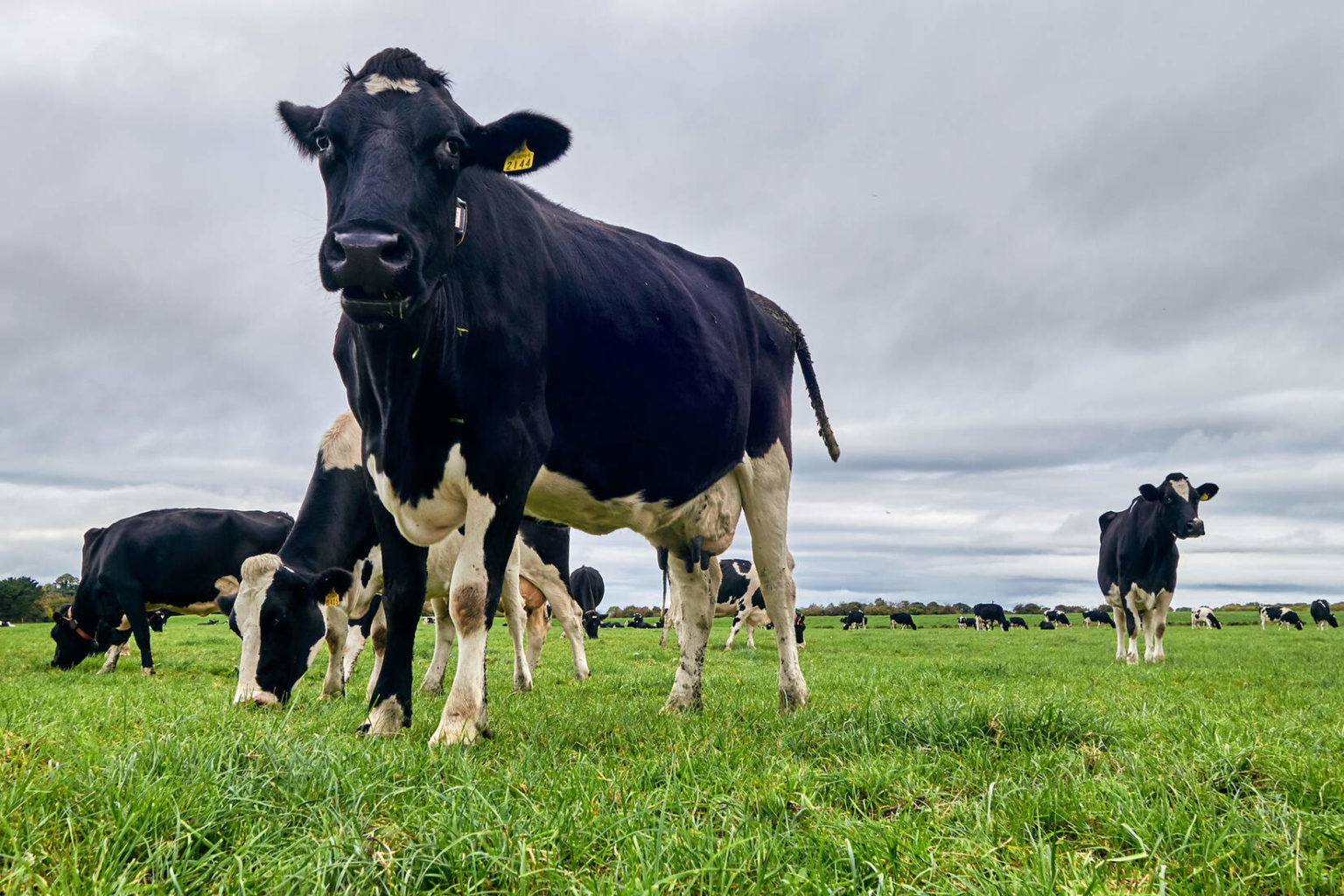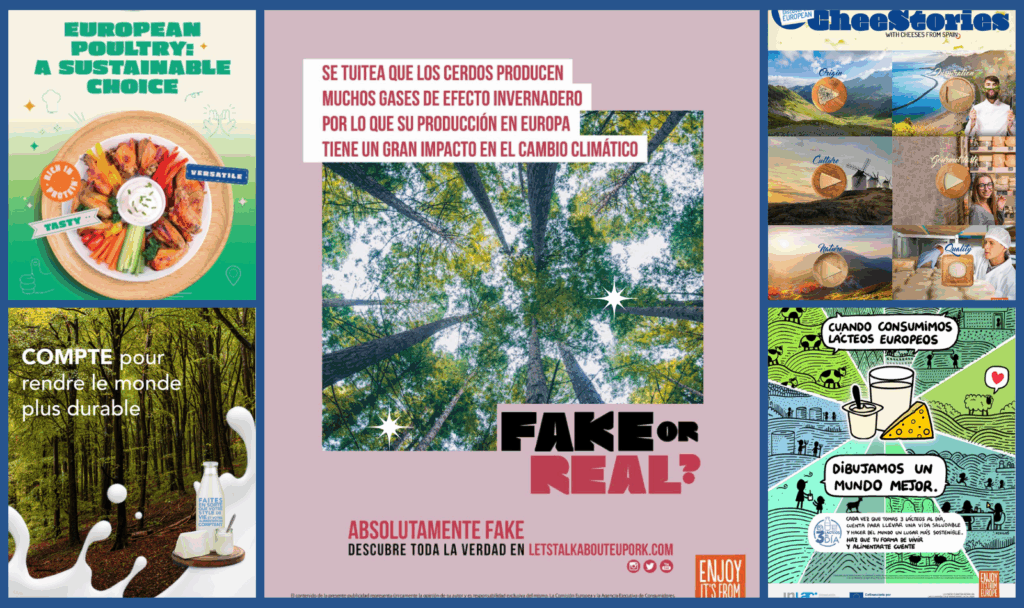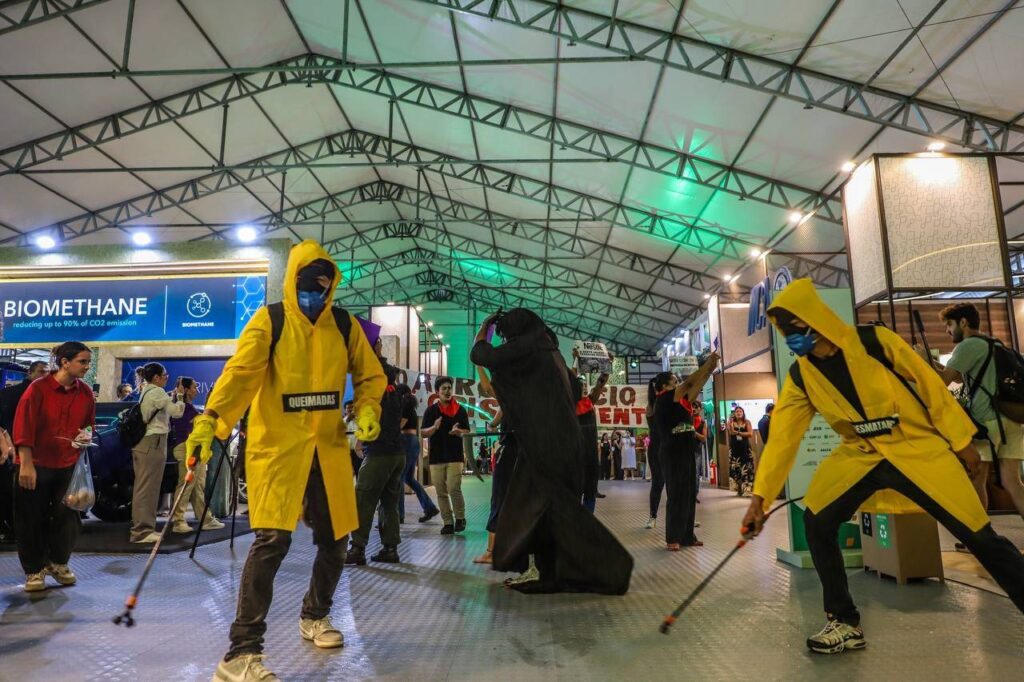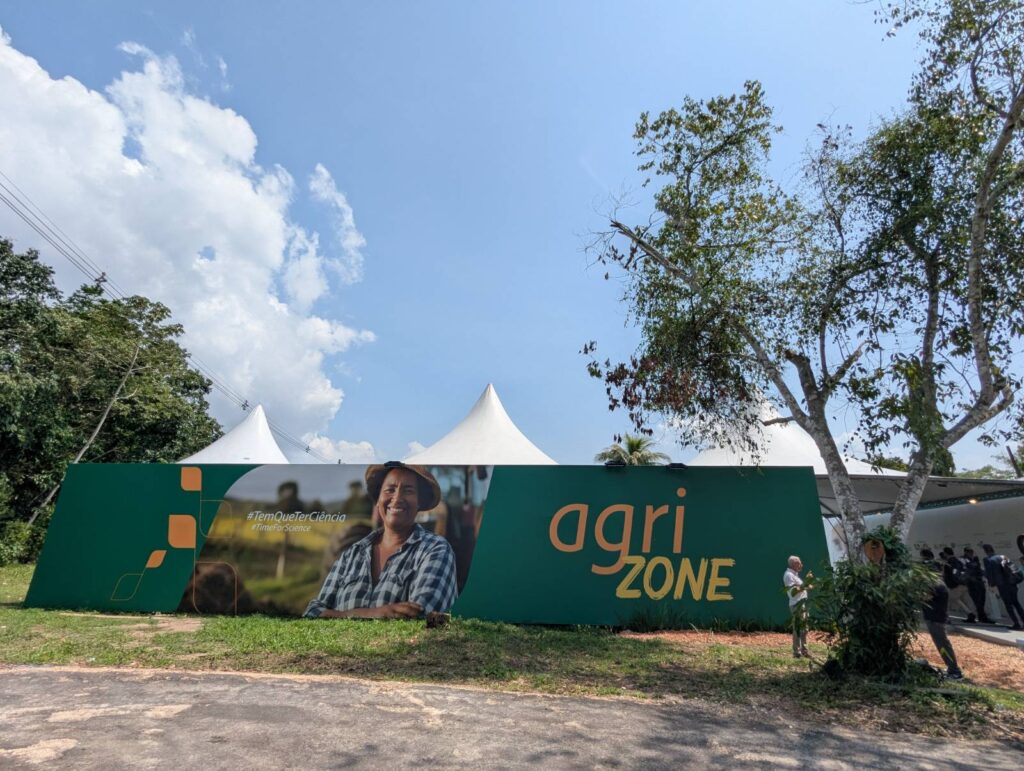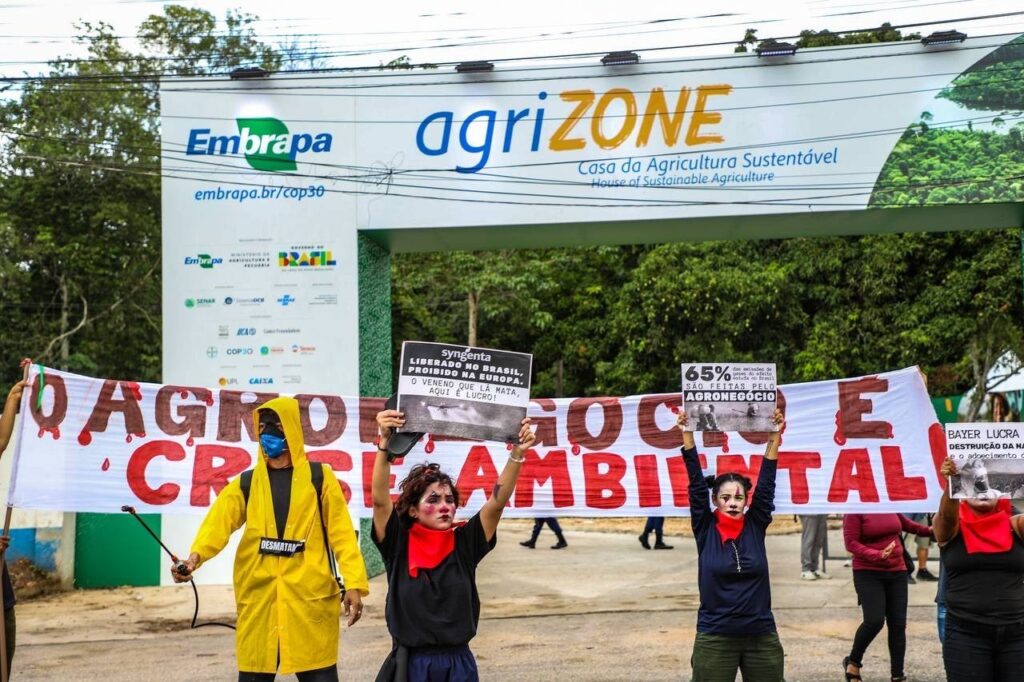Big Ag proponents are influencing classrooms in Ireland with learning materials that misrepresent the role of agriculture in contributing to climate change, pollution, and biodiversity loss, DeSmog can reveal. This undue influence is occurring due to a lack of government oversight of educational resources provided to primary schools.
Agriculture industry-funded organisations have for decades been operating at a low level in the educational field in Ireland, but this has been ramped up this year. The industry has introduced a range of elaborate materials, from workbooks and posters to children’s rhymes, to counter public concern over the environmental and climate impacts of livestock agriculture in particular, and to counter the growing popularity of vegetarian and vegan diets among the young.
Globally, the livestock industry is under pressure, as the production of just meat and dairy products generates 14.5 percent of all emissions — greater than the emissions from every car, bus, lorry, train, aircraft and ship in the world. Last year’s special report on climate change and land by the Intergovernmental Panel on Climate Change (IPCC) presented plant-based diets as a major opportunity for climate mitigation.
Ireland’s National Council for Curriculum and Assessment (NCCA) is charged with advising the Minister for Education & Skills on “early childhood education, primary and post-primary schools”.
However, a spokesperson confirmed that “the NCCA has no remit in deciding what materials are sent into schools. Schools receive numerous different offers of schemes, programmes, projects, competitions, initiatives etc. and it is for schools to decide themselves what materials they use to provide children with appropriate learning experiences.”
Agri Aware
In the absence of expert independent educational scrutiny, a number of agri-industry-funded initiatives have been developing what they describe as “curriculum-ready” materials, which are then generally distributed free of charge to schools.
One such organisation, Agri Aware, is a charitable trust controlled and funded by a consortium of agricultural industry players, including Ornua, Glanbia, Kerry, the Irish Food Board and the Irish Farmers Association (IFA). Last month, the group distributed a series of four 60-page workbooks under the title “Dig In” to over 3,200 primary schools.
In the workbook’s section titled “Healthy trees, healthy air”, it explains that: “The animals on the farm inhale oxygen and exhale carbon dioxide. Animals and humans need oxygen to stay alive and healthy.” However, there is no mention of the key greenhouse gas emitted by ruminants like cows and sheep: methane. A graphic accompanying the section shows what purports to be a circular flow of trees emitting oxygen, which is taken up by cows, who breathe out CO2, which trees then absorb.
Commenting on this section, Professor John Sweeney, a climatologist at Maynooth University, told DeSmog: “The simplistic and one-sided language in this publication presents a misleading educational message. There is no acknowledgement for example that the ‘animals on the farm’ also exhale high levels of Ireland’s most problematical greenhouse gas, methane, which is 86 times more potent than CO2 over a 20-year period”.
Sweeney also rejected the notion that trees cancel out Irish ruminant emissions, pointing out that the latter is four times greater than all emissions removed by forestry. The workbook also describes Ireland’s carbon footprint as “relatively small”. In fact, Ireland has the third highest per capita emissions in the European Union.
DeSmog sent a detailed list of questions to Agri Aware CEO, Marcus O’Halloran, including about an October tweet where the group claimed that methane “only lasts for 10 years in the atmosphere”. While the gas breaks down over the course of roughly a decade, methane continues to have a lengthy and powerful warming impact long after that. O’Halloran declined to comment.
The “Dig In” workbook series also downplays biodiversity loss, with language such as: “Farmers also protect the environment by caring for the hedgerows, which ensures that biodiversity is protected”.
Commenting on Agri Aware’s long-running schools programme, which was first launched in 2013, Pádraic Fogarty, campaigns officer with the Irish Wildlife Trust, described its materials as “part of the industry-funded greenwashing campaign that sets out to gloss over the serious environmental problems associated with agriculture in Ireland”.
Fogarty added: “In hoodwinking people into believing our farming model is environmentally friendly, it provides cover for catastrophic biodiversity loss, including extinction of species, pollution of waterways and emissions of climate changing gases. This type of greenwashing is therefore especially pernicious”.
Agri Aware also issued a recent poster on “Organic Farming Facts”, which infers low-impact, nature-friendly farming is the norm in Ireland. In reality, though, barely 2 percent of Irish land is farmed organically — among the lowest in the EU.
The director of Ireland’s Environmental Protection Agency, Laura Burke, last month delivered a blunt assessment of the true impacts of the sector: “The economic growth in recent years is happening at the expense of the environment as witnessed by the trends in water quality, emissions and biodiversity all going in the wrong direction.” Ireland’s “green” reputation, Burke added, “is largely not supported by evidence”.
Despite its controversial contents, the “Dig In” programme is supported by Ireland’s Department of Agriculture, as well as the Irish National Teachers’ Organisation (INTO), which has a member on the board of Agri Aware; Agri Aware, in turn, is closely tied to the powerful agri lobby group, the IFA, its CEO is a former IFA employee.
National Dairy Council
Another lobby group, the National Dairy Council (NDC) also actively promotes industry messaging to schools. Its “Moo Crew” programme features school materials such as posters and booklets. One poster claims: “Grasslands soak up carbon from the atmosphere, helping to partly offset some of the carbon emissions produced by agriculture”. However, according to EPA data, Irish grasslands are a net source of nearly 7 million tons of CO2 annually.
The NDC also claims that “Irish dairy farms have one of the lowest carbon footprints in the world”. Regional variations aside, livestock-based agricultural systems are almost invariably much more carbon-intensive than food production for direct human consumption. This is why the Intergovernmental Panel on Climate Change explicitly called for a major dietary shift towards a more plant-based diets.
This point was borne out in a 2017 study published by the European Parliament, which found that Irish agriculture (which is dominated by beef and dairy production) was the least climate-efficient in the EU. Irish agriculture was found to produce the most greenhouse gases per euro of output.
The Moo Crew project is supported by the Department of Agriculture and includes such overt marketing tactics in the educational materials as directing teachers to “ask pupils to think of new ways they can incorporate milk, yoghurt and cheese into their diets”.
Despite describing itself as a “national council”, the NDC is in fact “a private, farmer-funded marketing agency”, which is deploying dairy industry marketing strategies in the classroom to influence young children, using materials that are presented as purely educational.
An NDC spokesperson told DeSmog that it “engages with teachers on a regular basis, including focus groups, to ensure the resources are appropriate and developed in line with the Irish Primary School Curriculum”. The NDC, she added, “is aligned with the Department of Agriculture to deliver the EU School Milk Scheme to primary schools in Ireland”.
Agriculture Minister Charlie McConalogue recently stated he was aware of the pressures farmers feel from environmentalism, animal welfare activists and what he described as “the anti-dairy brigade”. Because of the political strength of the agri-food lobby in Ireland, ministers rarely challenge or seriously attempt to regulate the sector and instead are more likely to repeat industry talking points.
Irish Farmers Association-funded booklet
Another senior politician, foreign affairs minister Simon Coveney, took time out from Brexit negotiations to endorse a booklet called “Irish Food A-Z”, which is currently being distributed to over 3,000 primary schools and teacher training colleges, with funding from the IFA as well as meat factories and other agri-industrial interests.
The booklet, written by a former CEO of Agri Aware, is described as “curriculum-linked” and “science-based”, but its content is largely a series of industry PR points presented as rhymes, such as the following:
“Carbon comes from the fuel in a car, bus or plane, It even comes from our lovely cattle walking down the lane! Irish food is mainly grass-fed, with animals grazing as they grow. Our family farming on Irish land helps keep carbon emissions low.”
The author, who has a PhD in ruminant nutrition, declined to provide DeSmog with a copy of the Teachers’ Notes that accompany the booklet into schools.
When Education Minister Norma Foley was questioned on 8 December in Parliament on her views on the “proliferation of non-curricular publications seeking to target primary school children”, she confirmed the government’s laissez faire approach. She said the department “does not have a role in approving, commissioning, sponsoring or endorsing any content in any private programme delivered in schools … teachers and principals are best placed to determine the suitability of a resource for the children that they teach.”
This approach has allowed private commercial agri-industrial lobby groups, with the overt support of government departments and in some cases, EU funding, to flood Irish schools with misleading educational material supporting commercial agendas.
This is despite a report last year by the joint Oireachtas (Parliamentary) Committee on Climate Action which pointed out that today’s children will be more impacted by climate change than any other generation. At the time, it recommended “they be given the necessary educational training on climate change and its consequences, both nationally and globally”.
Main image: Curious cattle in Ireland. Credit: Lincoln Spaulding, CC BY–NC–ND 2.0.
Subscribe to our newsletter
Stay up to date with DeSmog news and alerts


